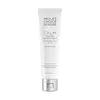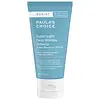What's inside
What's inside
 Key Ingredients
Key Ingredients

 Benefits
Benefits

 Concerns
Concerns

 Ingredients Side-by-side
Ingredients Side-by-side

Titanium Dioxide 3.85%
Cosmetic ColorantZinc Oxide 3.12%
Cosmetic ColorantWater
Skin ConditioningC12-15 Alkyl Benzoate
AntimicrobialIsononyl Isononanoate
EmollientPrunus Armeniaca Kernel Oil
MaskingCyclopentasiloxane
EmollientGlyceryl Stearate
EmollientPEG-100 Stearate
Butylene Glycol
HumectantPentylene Glycol
Skin ConditioningCetearyl Alcohol
EmollientDimethicone
EmollientGlycine Soja Sterols
EmollientVp/Eicosene Copolymer
Avena Sativa Kernel Extract
AbrasiveGlycerin
HumectantSodium Hyaluronate
HumectantAllantoin
Skin ConditioningTocopheryl Acetate
AntioxidantHydrogenated Lecithin
EmulsifyingTetrahexyldecyl Ascorbate
AntioxidantSuperoxide Dismutase
AntioxidantUbiquinone
AntioxidantCeramide Ng
Skin ConditioningMethicone
EmollientPalmitoyl Hexapeptide-12
Skin ConditioningPEG-10 Dimethicone
Skin ConditioningCucumis Sativus Fruit Extract
EmollientCaprylic/Capric Triglyceride
MaskingTribehenin
EmollientPEG-10 Phytosterol
EmulsifyingSorbitan Stearate
EmulsifyingPolyhydroxystearic Acid
EmulsifyingAlumina
AbrasivePolysorbate 20
EmulsifyingAluminum Stearate
Cosmetic ColorantXanthan Gum
EmulsifyingCaprylyl Glycol
EmollientDisodium EDTA
Ethylhexylglycerin
Skin ConditioningPhenoxyethanol
PreservativeChlorphenesin
AntimicrobialTitanium Dioxide 3.85%, Zinc Oxide 3.12%, Water, C12-15 Alkyl Benzoate, Isononyl Isononanoate, Prunus Armeniaca Kernel Oil, Cyclopentasiloxane, Glyceryl Stearate, PEG-100 Stearate, Butylene Glycol, Pentylene Glycol, Cetearyl Alcohol, Dimethicone, Glycine Soja Sterols, Vp/Eicosene Copolymer, Avena Sativa Kernel Extract, Glycerin, Sodium Hyaluronate, Allantoin, Tocopheryl Acetate, Hydrogenated Lecithin, Tetrahexyldecyl Ascorbate, Superoxide Dismutase, Ubiquinone, Ceramide Ng, Methicone, Palmitoyl Hexapeptide-12, PEG-10 Dimethicone, Cucumis Sativus Fruit Extract, Caprylic/Capric Triglyceride, Tribehenin, PEG-10 Phytosterol, Sorbitan Stearate, Polyhydroxystearic Acid, Alumina, Polysorbate 20, Aluminum Stearate, Xanthan Gum, Caprylyl Glycol, Disodium EDTA, Ethylhexylglycerin, Phenoxyethanol, Chlorphenesin
Water
Skin ConditioningCyclopentasiloxane
EmollientZinc Oxide
Cosmetic ColorantPEG-12 Dimethicone
Skin ConditioningPEG/PPG-18/18 Dimethicone
EmulsifyingLauroyl Lysine
Skin ConditioningSodium Chloride
MaskingTrihydroxystearin
Skin ConditioningDimethicone Crosspolymer
Emulsion StabilisingResveratrol
AntioxidantQuercetin
AntioxidantEpigallocatechin Gallate
AntioxidantTocopheryl Acetate
AntioxidantTetrahexyldecyl Ascorbate
AntioxidantAdenosine
Skin ConditioningBisabolol
MaskingSalix Nigra Bark Extract
Skin ProtectingPunica Granatum Extract
AstringentHaematococcus Pluvialis Extract
AntioxidantHydrolyzed Corn Starch
HumectantPolysorbate 80
EmulsifyingHydrated Silica
AbrasiveTriethoxycaprylylsilane
C12-15 Alkyl Benzoate
AntimicrobialIsopropyl Titanium Triisostearate
EmollientCaprylyl Glycol
EmollientHexylene Glycol
EmulsifyingEthylhexylglycerin
Skin ConditioningIron Oxides
Phenoxyethanol
PreservativeWater, Cyclopentasiloxane, Zinc Oxide, PEG-12 Dimethicone, PEG/PPG-18/18 Dimethicone, Lauroyl Lysine, Sodium Chloride, Trihydroxystearin, Dimethicone Crosspolymer, Resveratrol, Quercetin, Epigallocatechin Gallate, Tocopheryl Acetate, Tetrahexyldecyl Ascorbate, Adenosine, Bisabolol, Salix Nigra Bark Extract, Punica Granatum Extract, Haematococcus Pluvialis Extract, Hydrolyzed Corn Starch, Polysorbate 80, Hydrated Silica, Triethoxycaprylylsilane, C12-15 Alkyl Benzoate, Isopropyl Titanium Triisostearate, Caprylyl Glycol, Hexylene Glycol, Ethylhexylglycerin, Iron Oxides, Phenoxyethanol
 Reviews
Reviews

Ingredients Explained
These ingredients are found in both products.
Ingredients higher up in an ingredient list are typically present in a larger amount.
C12-15 Alkyl Benzoate is made up of Benzoic Acid and long chain alcohols. It has a low molecular weight.
C12-15 Alkyl Benzoate is an emollient and texture enhancer. Due to its solubility, it is often used in sunscreens to help evenly distribute active ingredients.
As an emollient, C12-15 Alkyl Benzoate helps soften and hydrate your skin. Emollients create a film on your skin that traps moisture within.
This ingredient has been reported to cause eye irritation.
Learn more about C12-15 Alkyl BenzoateCaprylyl Glycol is a humectant and emollient, meaning it attracts and preserves moisture.
It is a common ingredient in many products, especially those designed to hydrate skin. The primary benefits are retaining moisture, skin softening, and promoting a healthy skin barrier.
Though Caprylyl Glycol is an alcohol derived from fatty acids, it is not the kind that can dry out skin.
This ingredient is also used as a preservative to extend the life of products. It has slight antimicrobial properties.
Learn more about Caprylyl GlycolCyclopentasiloxane, or D5, is a silicone used to improve texture of products and trap moisture.
D5 is considered lightweight and volatile. Volatile means it evaporates quickly after application. Once evaporated, D5 leaves a thin barrier that helps keep skin hydrated.
It is also an emollient. Emollients help soften the skin and prevent water loss. Silicones create a silky texture in products. D5 helps other ingredients become more spreadable.
Studies show D5 is safe to use in skincare products. We recommend speaking with a skincare professional if you have concerns.
Learn more about CyclopentasiloxaneEthylhexylglycerin (we can't pronounce this either) is commonly used as a preservative and skin softener. It is derived from glyceryl.
You might see Ethylhexylglycerin often paired with other preservatives such as phenoxyethanol. Ethylhexylglycerin has been found to increase the effectiveness of these other preservatives.
Phenoxyethanol is a preservative that has germicide, antimicrobial, and aromatic properties. Studies show that phenoxyethanol can prevent microbial growth. By itself, it has a scent that is similar to that of a rose.
It's often used in formulations along with Caprylyl Glycol to preserve the shelf life of products.
Tetrahexyldecyl Ascorbate (THD) is a stable and oil-soluble form of Vitamin C.
THD is special in that it has the ability to travel deeper into skin than traditional ascorbic acid while maintaining the same skin benefits (double win!).
Because it’s oil-soluble, THD dives deep into your skin’s fatty layers (think ceramides and cholesterol) to fight off the kind of free radicals that mess with your skin barrier. This makes it a great pair with water-based vitamin C (ascorbic acid) that mainly works on the surface.
Even at just 0.1%, THD is already showing great antioxidant activity. When used up to 2%, it helps keep your skin happy and calm, especially when it’s stressed from pollution or sun.
Want to fade dark spots or tackle hyperpigmentation? You’ll want 5% or more. Pairing it with brightening buddies like niacinamide or licorice root gives even better results. One study even used 30% THD with other brighteners and saw real results on stubborn discoloration, even in melasma-prone skin.
A note on THD: It’s has a slightly silky, oily texture and usually shows up colorless or pale yellow (though the exact shade can vary by supplier).
While you can sneak it into water-based formulas, it really shines when paired with silicones or oils, which help your skin soak it up better.
THD is pretty stable, but it’s still vulnerable to degradation like ascorbic acid. Too much light or heat (above 113°F / 45°C) can break it down over time. Go for dark and opaque packaging that keeps it safe and shady!
Read more about other types of Vitamin C:
Learn more about Tetrahexyldecyl AscorbateTocopheryl Acetate is AKA Vitamin E. It is an antioxidant and protects your skin from free radicals. Free radicals damage the skin by breaking down collagen.
One study found using Tocopheryl Acetate with Vitamin C decreased the number of sunburned cells.
Tocopheryl Acetate is commonly found in both skincare and dietary supplements.
Learn more about Tocopheryl AcetateWater. It's the most common cosmetic ingredient of all. You'll usually see it at the top of ingredient lists, meaning that it makes up the largest part of the product.
So why is it so popular? Water most often acts as a solvent - this means that it helps dissolve other ingredients into the formulation.
You'll also recognize water as that liquid we all need to stay alive. If you see this, drink a glass of water. Stay hydrated!
Learn more about WaterZinc Oxide is a mineral broad-spectrum UV filter; it is the broadest UVA and UVB reflector approved by the FDA. It also has skin protectant and skin soothing properties.
Zinc oxide is one of the most effective broad-spectrum UV filters. It protects against UVB, UVAII, and UVAI. In comparison to its counterpart titanium dioxide, zinc oxide provides uniform and extended UVA protection.
Another great benefit? This ingredient is highly photostable so it won't degrade easily under sunlight.
A common myth is that mineral UV filters are widely believed to primarily reflect UV light.
However, modern research shows titanium dioxide absorbs UV radiation like chemical filters (~95% absorption & 5% reflection).
Zinc oxide has great skin soothing properties so you'll likely find this in sunscreens formulated for sensitive skin or babies/children. It is unlikely to cause "eye sting" like other sunscreen ingredients.
Regulatory agencies consider zinc oxide to be non-toxic and safe. It has also been shown to not penetrate the skin.
Unfortunately, this ingredient does leave a visible white cast. This is why mineral sunscreens are often less cosmetically elegant than chemical or hybrid ones.
In cosmetics, zinc oxide can be found in both non-nano and nano-sized forms. The nano version is used to reduce white cast and improve the texture of sunscreen formulas.
There are ongoing concerns surrounding nano-zinc oxide's impact on marine ecosystems and whether it can be absorbed into skin.
Regarding marine ecosystems and coral reefs, there is no conclusive evidence that any form of zinc oxide (or any other sunscreen ingredients) will cause harm. The science is still developing but many consumers are keeping a close eye on this issue.
Please note, many destinations have reef-safety sunscreen rules. For instance, the U.S. Virgin Islands advises all visitors to use non-nano mineral sunscreens.
There has also been some stir about whether micronized or nano zinc oxide has potential photoxicity and absorption through the skin/lungs.
An in-vitro (done in a test tube or petri dish) study demonstrated micronized zinc oxide to have potential phototoxicity. There's no need to fret; the EU Commission's Scientific Committee on Consumer Safety has stated, "The relevance of these findings needs to be clarified by appropriate investigations in vivo." Or in other words, further studies done on living organisms are needed to prove this.
Current research shows zinc oxide nanoparticles do not penetrate intact or sunburned skin. They either remain on the surface or in the outermost layer of dead skin (stratum corneum).
Zinc oxide is one of only two classified mineral UV filters with titanium dioxide being the other one.
Fun fact: Zinc has been used throughout history as an ingredient in paint and medicine. An Indian text from 500BC is believed to list zinc oxide as a salve for open wound. The Ancient Greek physician Dioscorides has also mentioned the use of zinc as an ointment in 1AD.
Learn more about Zinc Oxide